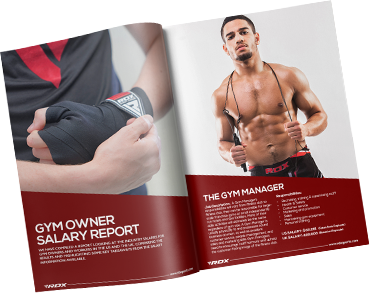In our crowded fitness equipment landscape, a laid back attitude isn’t going to help anyone. Gone are the days when B2B retailers didn’t need to put in any effort in terms of branding and marketing. Nowadays, a strong brand identity is a necessity.
For B2B businesses, branding goes way beyond attractive logos and taglines; it’s about constantly and consistently creating a compelling story that resonates with partners and clients alike. A well-crafted brand identity carves a special place for you in the market and among your competitors, fostering trust and loyalty that drive long-term success.
Your branding is what makes your customer make a base line for your product in the sea of choices. Although building a robust brand is no easy feat, the rewards—enhanced visibility, increased market share, and deeper connections—are well worth the effort.
Lets learn a few things about fitness branding in this blog.
Digging Deep into Fitness Brand Marketing
Brand identity for fitness equipment businesses is what sets your brand apart and creates a lasting impression in the minds of your audience. For fitness equipment brands, this identity consists of several key elements:
- Brand Values: These are the foundational principles and beliefs that form every aspect of your business. Whether your focus is on innovation, sustainability, or enhancing customer well-being, articulating these values with clarity and conviction creates a profound connection with your target market.
- Visual Identity: Visual identity is your logo, your colour schemes, typography, and overall design language. For fitness equipment brands, a bold and energetic visual identity can project strength, reliability, and cutting-edge performance, attracting customers who value quality and endurance.
- Customer Perception: The way customers perceive your brand is shaped by their interactions and experiences with your products, customer service, and overall brand communication. Crafting a positive, consistent customer experience fosters trust and cultivates loyalty.
When it comes to branding, consistency across all marketing channels is the real key. It is this consistency that reinforces your brand image in the minds of your audience at every platform, ultimately fixating special meanings and feelings with your content.
Such steadfast consistency not only fortifies your brand's presence but also enhances credibility and engenders trust among your audience.
Why Brand Identity is Critical for B2B Retailers and Wholesalers?

Branding and a strong brand identity are just as crucial for B2B entities as they are in B2C markets. This stems from the understanding that B2B buyers are, fundamentally, people driven by emotions, perceptions, and experiences. These human elements significantly influence economic decision-making, making the emotional impact of branding a powerful tool.
Evoking Emotional Reactions
B2B buyers often rely on their first impressions, stored memories, and feelings when making purchasing decisions. Brands that successfully evoke positive emotions and associations can effectively stimulate the part of the brain that governs emotional reactions. By cultivating these associations, you can start building relationships with potential partners and clients even before formal negotiations begin.
Building Trust
A robust brand identity helps build trust with B2B customers, which is the foundation of any strong partnership. Trust facilitates smoother negotiations, as partners are more likely to engage with brands they perceive as reliable and credible.
This credibility not only improves negotiation power but also aids in customer retention and loyalty. A brand that consistently delivers on its promises fosters long-term relationships, which are vital in the B2B sector.
Market Positioning
A well-established brand identity enhances wholesale success by improving market positioning. A recognisable and respected brand commands attention and preference in the marketplace, which can lead to increased demand and better terms during negotiations.
Fitness brands with strong identities are perceived as market leaders, directly influencing market credibility and customer engagement. This, in turn, drives sales and positions the brand as a preferred partner in the industry.
Actually branding goes beyond mere logos and taglines. It operates on an emotional level, making it a critical element in driving business success, building trust, and lasting partnerships in the fitness equipment industry.
Wholesale Branding Strategies to Strengthen Market Identity
We have talked a good bit about branding and its various aspects and also how it is very important for b2b entities. Let’s discover a few awesome wholesale branding strategies that work in all scenarios and all brands, especially fitness brands.
Co-branding Opportunities
Partnering with complementary fitness brands can significantly enhance your brand’s reach and credibility. Co-branding allows you to tap into an already established customer base of your partner, creating a synergy that benefits both brands.
It helps you achieve more with less effort. For instance, a collaboration between a fitness equipment manufacturer and a popular sports apparel brand can attract a broader audience, combining the strengths of both brands.
These partnerships can also lead to innovative product offerings and joint marketing campaigns, further solidifying your brand’s presence in the market.
Customisation and Personalisation
Offering customised fitness equipment options for wholesale clients can greatly reinforce your brand identity. Personalisation adds a unique touch to your products, making them more appealing to clients who seek to differentiate themselves in the market.
Whether it’s custom branding on equipment or tailored product features to meet specific needs, this approach not only enhances customer satisfaction but also fosters a deeper connection with your brand.
It signals your commitment to meeting the unique demands of each client, thereby building stronger, more loyal relationships. For example, RDX Sports is catering to custom orders for smart combat fitness equipment orders, catering to the rising need of wearable and smart technology in combat sports.
Content Marketing
Targeted content marketing plays a pivotal role in building a compelling brand narrative that resonates with B2B customers. Creating and sharing valuable content, such as case studies, success stories, and industry insights, helps establish your brand as a thought leader in the fitness equipment industry.
These narratives showcase your brand’s expertise and success, providing prospective clients with concrete examples of how your products have made a difference. Well-crafted content can engage your audience, build trust, and drive interest in your brand.
Leveraging Technology
The use of advanced technology, such as CRM systems and AI-driven analytics, can significantly refine your branding strategies and improve customer engagement. CRM systems help manage and analyse customer interactions, providing insights into customer preferences and behaviours.
This information is invaluable for tailoring your branding efforts to meet the specific needs of your clients. AI-driven analytics can further enhance this by predicting trends and identifying opportunities for targeted marketing.
By leveraging these technologies, B2B retailers can create more effective, data-driven branding strategies that resonate with their audience and drive business growth.
Together, these approaches can position your brand as a leader in the fitness equipment industry, fostering trust and loyalty among your B2B customers and earning you long term profits.
Related Article: Boost Customer Engagement & Sales: How Smart Boxing Gear Can Revolutionize Your Business
Challenges in Building a Fitness Equipment Brand Identity

Building a strong brand identity is awesome but it has its own issues. Certainly not a piece of cake! Lets see how it can present quite a few challenges:
Market Competition is fierce, with numerous brands vying for attention. Differentiating your brand requires a clear and unique value proposition that sets you apart from competitors. Developing a distinctive brand narrative and focusing on niche markets can help establish a unique identity that stands out.
Brand Consistency is another challenge, especially when operating across different markets and distribution channels. Maintaining a uniform brand message and visual identity can be difficult when adapting to various regional preferences and retail environments. Implementing strict brand guidelines and investing in comprehensive training for your teams can help ensure consistency across all touchpoints.
Adapting to Market Trends is also crucial. The fitness industry evolves rapidly, with new trends and consumer preferences emerging regularly. While it’s important to stay relevant and responsive to these changes, it’s equally vital to preserve your brand’s core values. Regularly reviewing and refining your brand strategy, while keeping the core values intact, can help you stay agile without compromising your brand’s identity.
RDX Sports and Brand Identity
RDX Sports has successfully built trust and fostered strong relationships by crafting a compelling and consistent brand identity. By focusing on quality and innovation, RDX Sports has established itself as a trusted name in the fitness equipment industry. The brand's commitment to excellence is reflected in its product design, quality, customer service, and overall brand messaging.
This unwavering dedication has created a solid foundation of trust among clients and partners, reinforcing the brand’s reputation as a reliable and industry-leading provider.
As a result of its robust brand identity, RDX Sports is expanding its reach globally, tapping into new markets and forming strategic partnerships worldwide. The brand’s ability to maintain consistency across diverse regions while adapting to local preferences has facilitated its international growth.
This global expansion not only enhances RDX Sports' market presence but also solidifies its position as a major player in the fitness equipment sector. Through effective branding, RDX Sports continues to build lasting relationships and drive business success on a global scale.
Related Article: Expanding Your Reach: Strategies for Global MMA Gear Distribution
Conclusion:
In the competitive fitness equipment industry, a strong brand identity is essential for standing out and fostering trust. RDX Sports exemplifies how effective branding can drive global success and build lasting relationships.
As an industry leader, RDX Sports offers unparalleled expertise in creating compelling brand identities that resonate with both B2B retailers and wholesalers. Partnering with RDX Sports can significantly enhance your brand’s market presence, improve customer engagement, and boost revenue.
Explore the opportunity to collaborate with RDX Sports and leverage their proven strategies to elevate your brand and achieve new heights in the fitness equipment market.
Read More
- The Future of Fitness Equipment Industry: 2024's Top Tech Innovations.
- Step-by-Step Guide to Global Trade for MMA and Boxing Gear.
- Why Choose Certified MMA Gear for Your Wholesale Business.
- Finding the Right MMA Gear: Which Certifications Matter?
Related Articles:
How To Make Your Own E-commerce Website From Scratch


